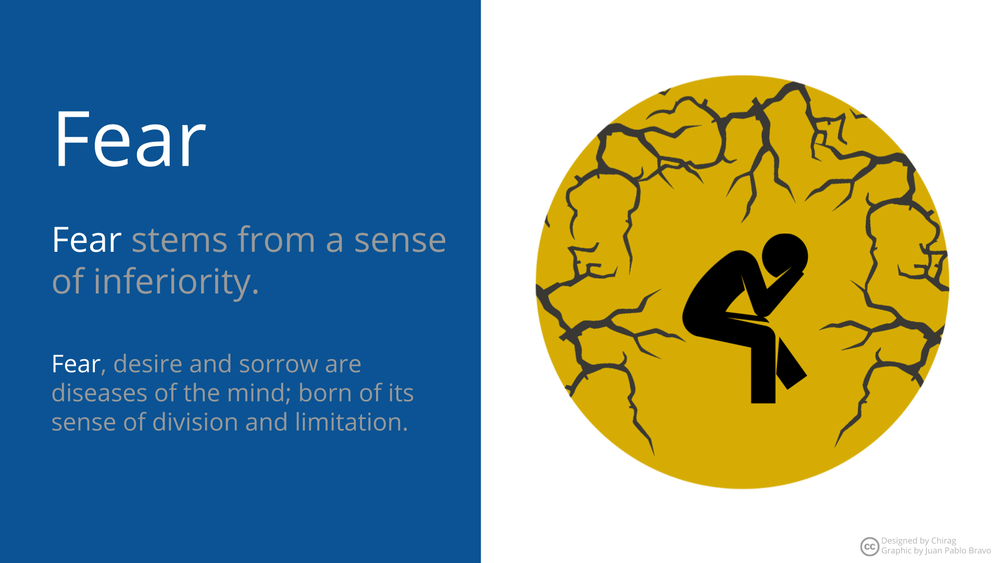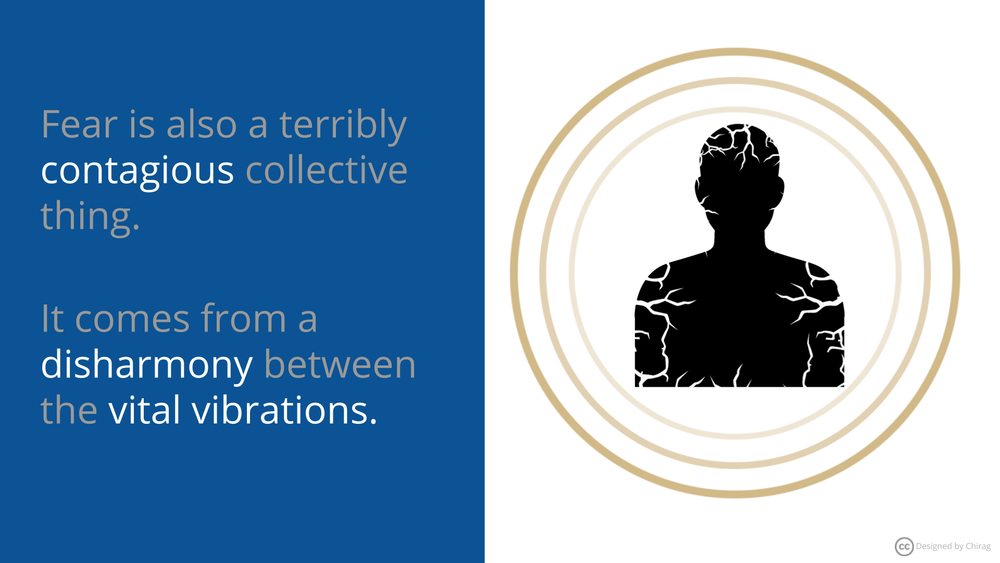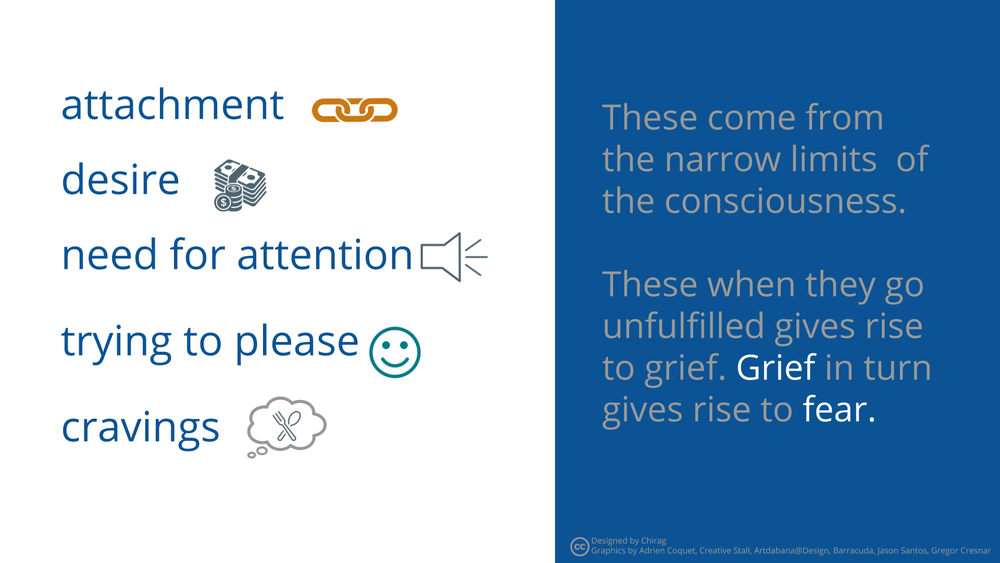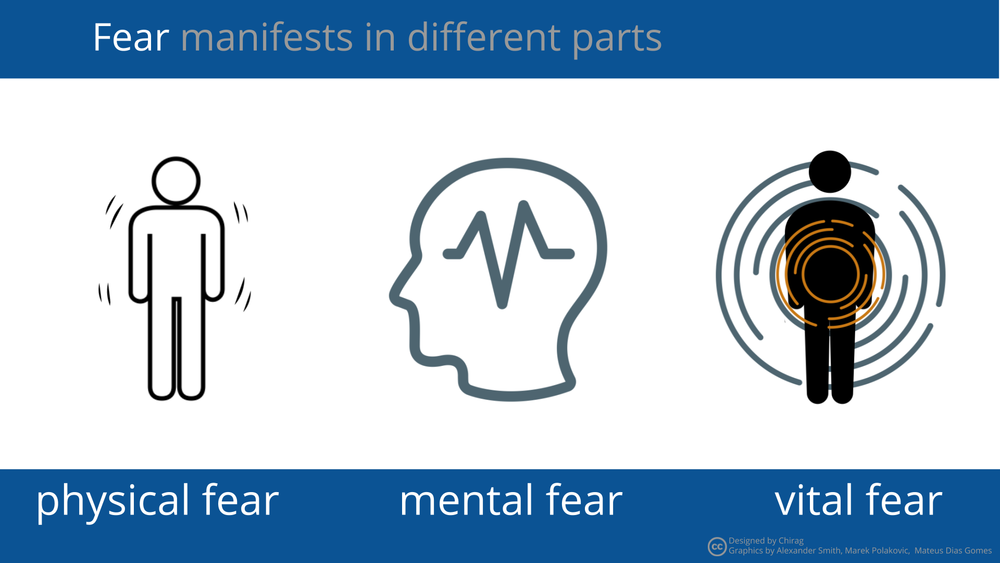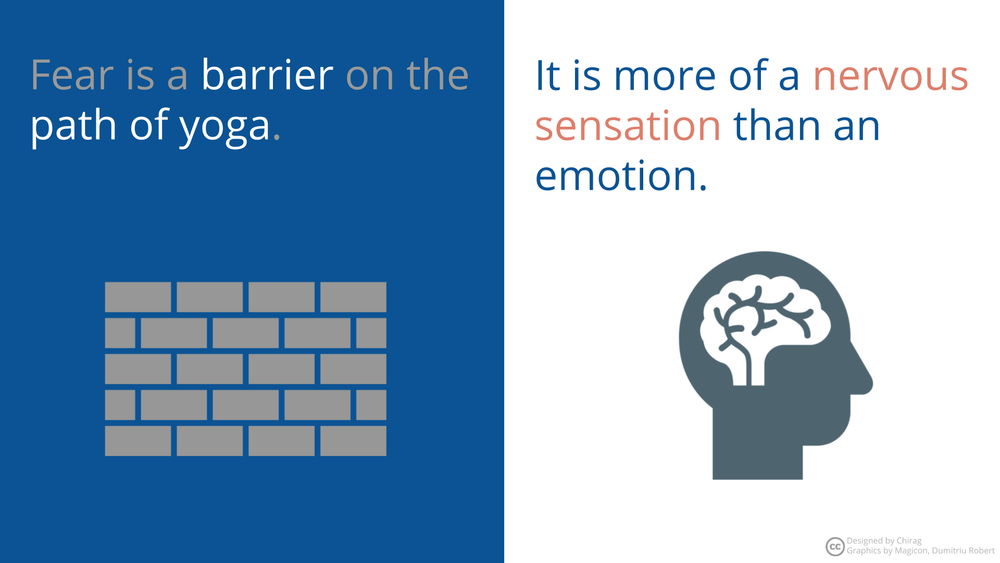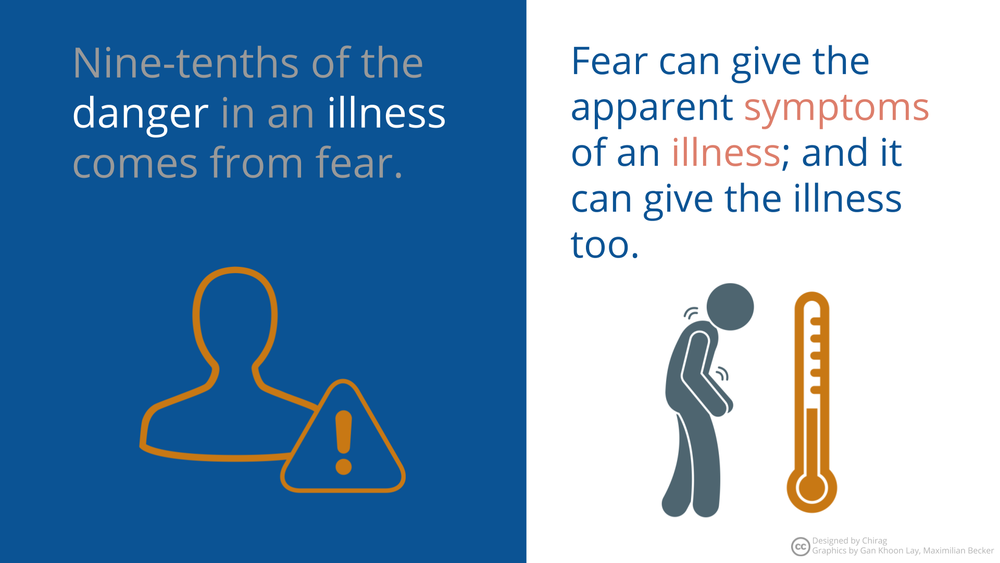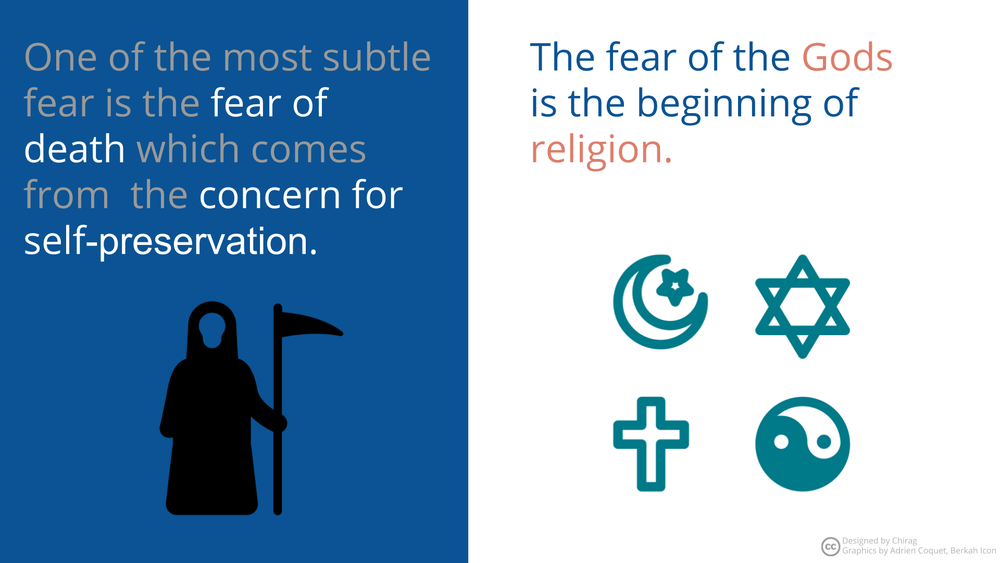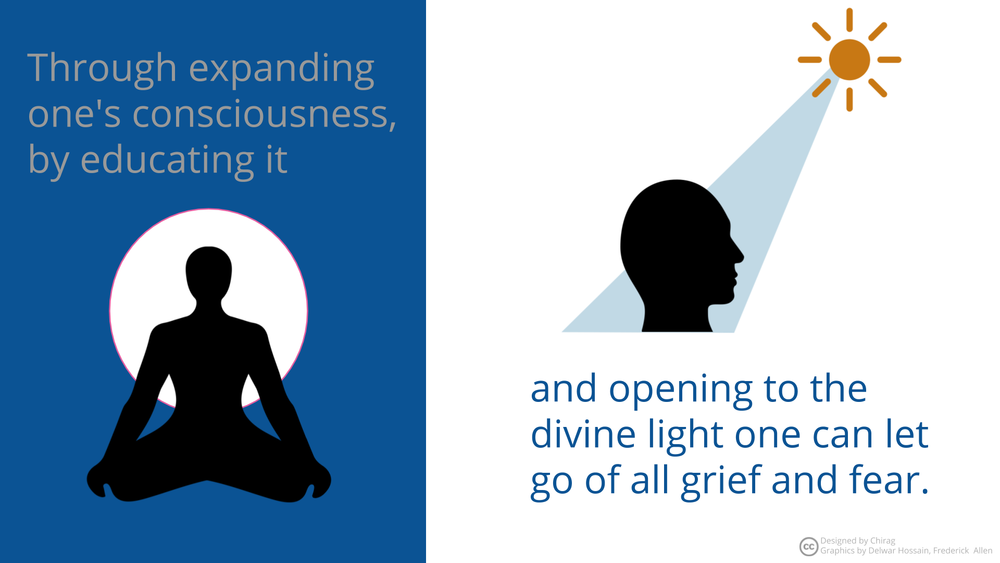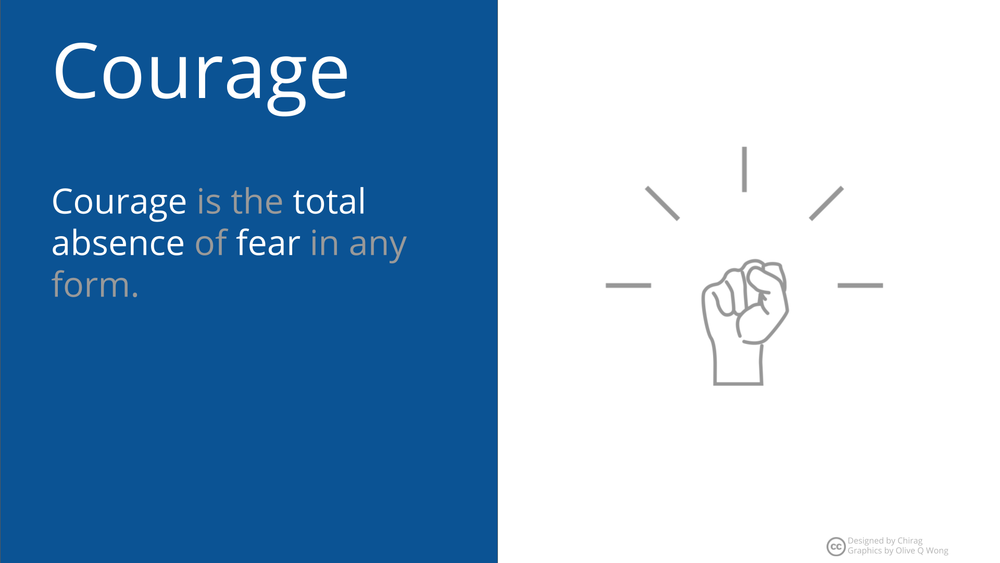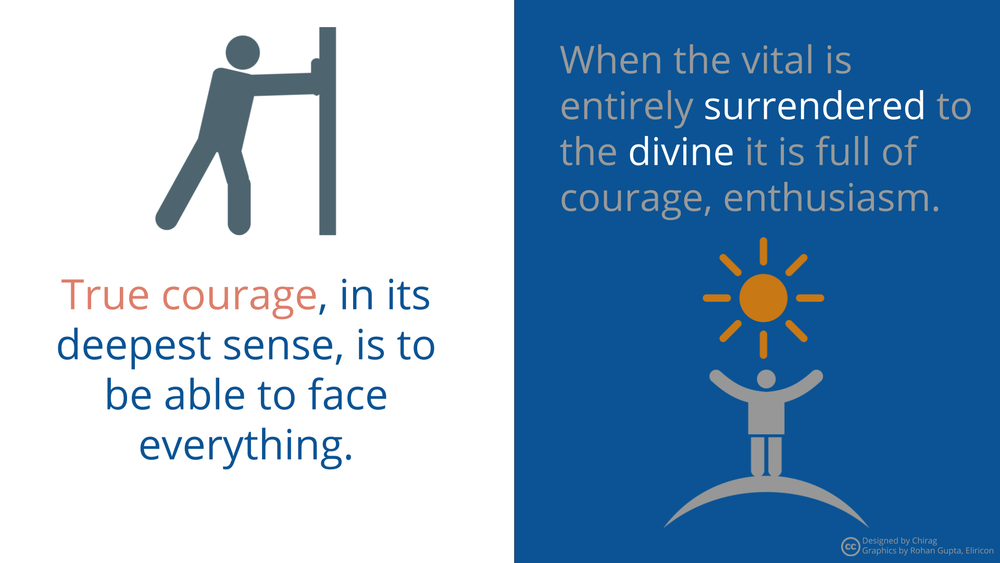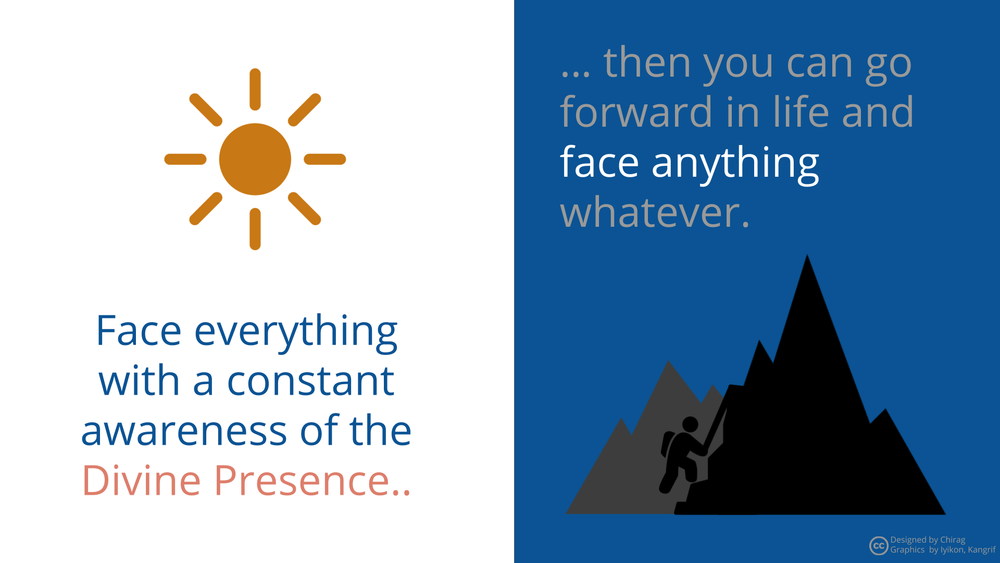Fear Summary
|
Read more about Fear from the works of the Mother and Sri Aurobindo. |
Fear Summary
What is FearFear is a phenomenon of unconsciousness. It is a kind of anguish that comes from ignorance. One does not know the nature of a certain thing, does not know its effect or what will happen, does not know the consequences of one's acts, one does not know so many things; and this ignorance brings fear. One fears what one does not know. [1] Fear is also a terribly contagious collective thing—it is much more contagious than the most contagious of illnesses. You breathe an atmosphere of fear and instantly you feel frightened, without even knowing why or how, nothing, simply because there was an atmosphere of fear. [2]
Fear can be classified as mental fear, vital fear and physical fear. In majority of the people, physical is governed by the subconscious and fears that are driven out of active consciousness take refuge in that subconscious. Thus, the physical fear is in the subconscious hidden by the mental and vital fear which are much more conscious. [3] Mental Fear The normal human condition is a state filled with apprehensions and fears; if you observe your mind deeply for ten minutes, you will find that for nine out of ten it is full of fears—it carries in it fear about many things, big and small, near and far, seen and unseen, and though you do not usually take conscious notice of it, it is there all the same. [4] Vital Fear The fear is again that of the physical consciousness or of the vital element in it—it is afraid if it gives up desire that it will lose everything—or everything it wants—and gain nothing in exchange or at least nothing it wants. [5] Physical Fear It is a curious little vibration that gets into your cells and they begin shivering that way. But the cells are not like a heart beating very fast. It is in the very cells: they tremble with just a slight quivering. And it is very difficult to control this. Yet it can be controlled. [6] Why there is FearMental Fear Fear stems from a sense of inferiority. [7] A vast majority of men like to live in a limited sphere bound to their littleness and falsehood. They free freedome and light. Vital Fear There are three reasons. First, an excessive concern about one's security. Next, what one does not know always gives an uneasy feeling which is translated in the consciousness by fear. And above all, one doesn't have the habit of a spontaneous trust in the Divine. [8] We like, love, welcome, hope for, joy in whatever our nature, the first habit of our being, or else a formed (often perverse) habit, the second nature of our being, presents to the mind as pleasant, priyam; we hate, dislike, fear, have repulsion from or grief of whatever it presents to us as unpleasant, apriyam. This habit of the emotional nature gets into the way of the intelligent will and makes it often a helpless slave of the emotional being or at least prevents it from exercising a free judgment and government of the nature. This deformation has to be corrected. By getting rid of desire in the psychic prana and its intermiscence in the emotional mind, we facilitate the correction. [9] Physical Fear Because in the large majority of men, the body receives its inspirations from the subconscient, it is under the influence of the subconscient. All the fears driven out from the active consciousness go and take refuge there and then, naturally, they have to be chased out from the subconscient and uprooted from there. [10] How to Overcome FearsIf you remain vigilant, then with the increase of the Force upholding you, a power of self-control will come, a power to see and reject the wrong turn or the wrong reaction when it comes. Fear and unhappiness will not give you that. It is only by this vigilance accompanied by an opening to the supporting and guiding Force that it will come. [11] One of the great remedies for conquering fear is to face boldly what one fears. You are put face to face with the danger you fear and you fear it no longer. The fear disappears. [12] In order to set out on these paths without fear and without any danger, one must have organised his being with the help of reason around the highest centre he consciously possesses, and organised it in such a way that it is inwardly in his control and he has not to say at every moment, "Ah! I have done this, I don't know why. Ah! That's happened to me, I don't know why"—and always it is "I don't know, I don't know, I don't know", and as long as it is like that, the path is somewhat dangerous. [13] And the truth is that if instead of being shut up in the narrow limits of their little person, they could so widen their consciousness as to be able not only to identify themselves with others in their narrow limits, but to come out of these limits, pass beyond, spread out everywhere, unite with the one Consciousness and become all things, then, at that moment the narrow limits will vanish, but not before. [14]
References |
- ↑ http://incarnateword.in/cwm/06/10-march-1954#p20
- ↑ http://incarnateword.in/cwm/05/14-october-1953#p38
- ↑ http://incarnateword.in/cwm/06/10-march-1954#p24
- ↑ http://incarnateword.in/cwm/03/19-may-1929#p18
- ↑ http://incarnateword.in/cwsa/31/desire#p56
- ↑ http://incarnateword.in/cwm/05/22-july-1953#p17
- ↑ http://incarnateword.in/cwm/12/students#p35
- ↑ http://incarnateword.in/cwm/04/14-march-1951#p30
- ↑ http://incarnateword.in/cwsa/24/purification-the-lower-mentality#p7
- ↑ http://incarnateword.in/cwm/04/14-march-1951#p27
- ↑ http://incarnateword.in/cwsa/31/fear#p12
- ↑ http://incarnateword.in/cwm/06/10-march-1954#p22
- ↑ http://incarnateword.in/cwm/07/25-may-1955#p55
- ↑ http://incarnateword.in/cwm/05/19-august-1953#p27
